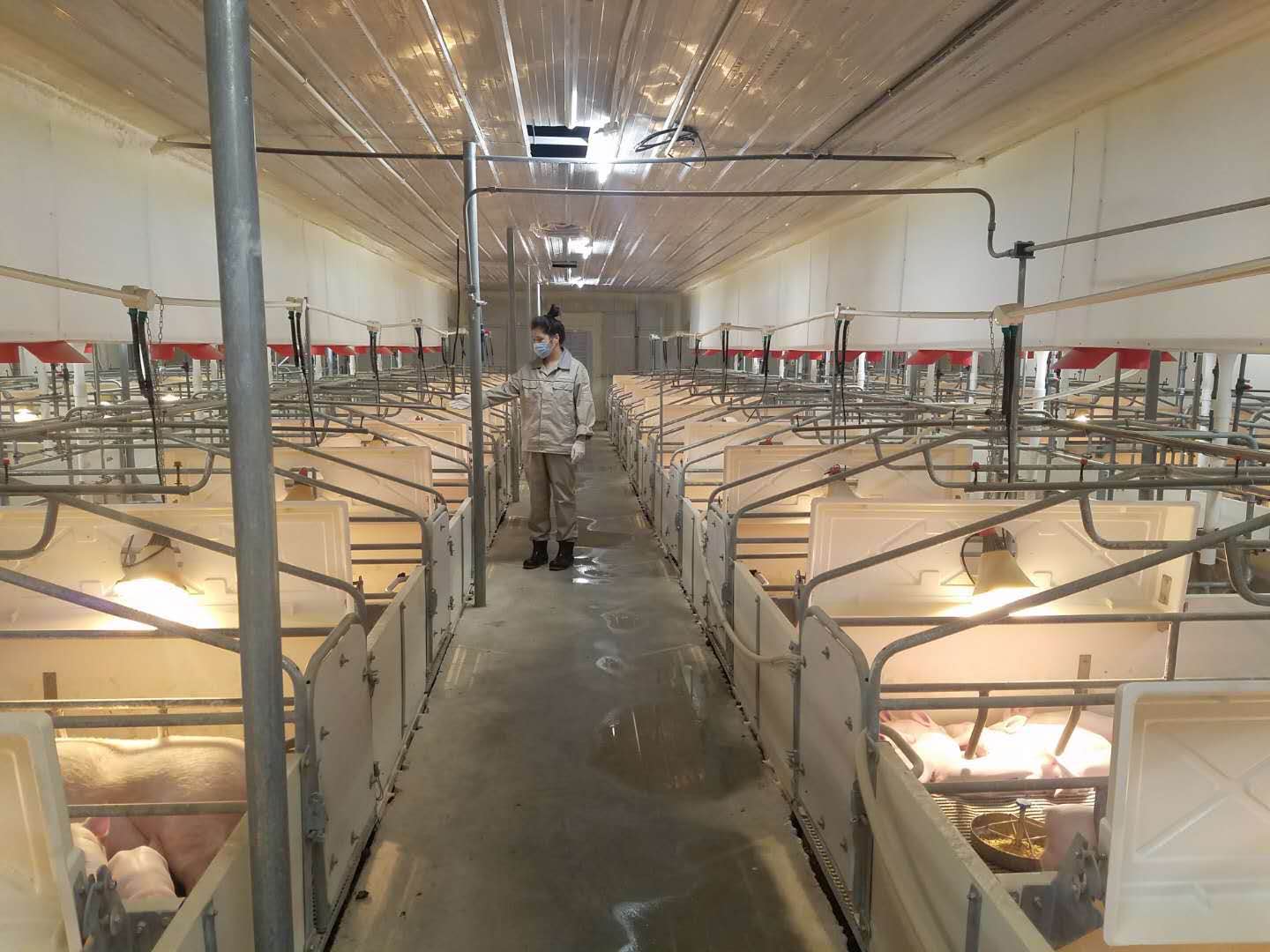The potential impact of COVID-19 on food security in China and globally
p.china.org.cn by Matteo Marchisio,March 17, 2020 Adjust font size:

A Chinese enterprise strives to improve the pig breeding capacity in Neixiang county, Henan province. [Photo by China.org.cn]
Last week’s OECD Interim Economic Outlook confirmed, as predictable, that the impact of Covid-19 outbreak on China’s and the rest of the world’s economy is going to be extremely severe. Restrictions on movement of people, goods and services, and containment measures such as factory closures have cut manufacturing and domestic demand sharply in China. As a result, OECD lowered its forecast on China’s GDP growth in 2020 - from an initial 5.7 percent growth estimate in November 2019, to a much lower 4.9 percent in March 2020. Similarly, because of China’s weight on the global economy and the rapid expansion of Covid-19 globally, OECD suggested that global GDP growth could drop from an already weak 2.9 percent in 2019 to an even lower 2.4 percent in 2020.
While the economic impact of Covid-19 on China’s and the world economy is being carefully monitored and assessed, at the moment little is known about the impact of the outbreak on other “non-economic” sectors, such as on “development.”
As representative of an international organization mandated to rural development, poverty reduction, and food security, the International Fund for Agricultural Development (IFAD), let me share some personal reflections on the possible impact of the Covid-19 on the achievement of the Sustainable Development Goals (SDGs), and particularly on SDG 2: food security - both in China and globally.
Let me state beforehand that the very limited data currently available make such assessment extremely difficult. My considerations are thus mainly based on my personal observations in China.
Considering the agricultural sector contributes to about 7 percent of the GDP in China, the impact of Covid-19 on China’s overall economy would equally affect the agricultural and food security sector. In this regard, we can anticipate a shorter-term, or immediate, impact, and a longer-term impact - which potentially can have global consequences.
I. Immediate impact
The restrictions on movement of people and factory closures implemented by the China Government had an impact on the circulation, and thus availability, of food and agricultural products, and the interruption of several value-chains, with a potential impact on prices.
Counterintuitively however, what has been observed so far is that, despite the limited circulation of food, food supply has overall remained stable, and – with limited exceptions, food prices in the country have remained overall stable as well. This can be probably attributed to the large availability of food stocks at the time of the outbreak, when movement restriction measures begun to be implemented.
However, the longer the situation persists and the longer the restrictive measures continue, the more stress would be exerted on the whole system. If circulation of people is not be re-established soon, food stocks are destined to reduce, and prices to increase.
Obviously, the most impacted would be the poorest and the most vulnerable segments of the population, who have less capacity to deal with the prolonged negative effects (particularly on labour/wages and production, and - ultimately - on households’ income) of the restrictive preventive measures.
II. Medium- to longer-term impact (and potential global impact)
Beyond the short-term impact of the implemented measures on the food supply, if the situation persists and restrictions on movements continue, there is a risk that the agricultural “production” would be impacted, with consequent longer-lasting and deeper impacts on food availability, prices, and - ultimately - overall food security.
March is in fact the beginning of the planting season in many provinces of China. If, because of the movement restrictions, the planting season is missed or delayed, this year’s production would likely suffer, internal food demand would likely not be met, and pressure on agricultural imports will increase – with consequences on global food availability and food prices. The risk of ending up facing a situation similar to that of the food crisis in 2008 is - although at the moment remote - a possibility not to be completely overlooked. Chinese leaders are aware of the potential risk, giving early resumption of agricultural production high priority.
Even in the likely case China will not experience food shortages, global food security could be challenged if, as a consequence of the spreading of the Covid-19 globally, other countries will start experiencing stress on their agricultural production capacity and circulation of food – particularly developing countries.
III. What possible solutions – and what dilemmas
China needs to restart the economy - including the food industry, from production to distribution, whenever possible, as soon as possible. The immediate constraints to the movement of people and goods need to be removed where possible, so that farming can re-start and the food-supply chains re-established without major delays.
The Government is encouraging resumption of normal activities, particularly in those areas that were least affected by the outbreak. However, local governments will be facing a dilemma: on the one hand, the need to restart the economy, and, on the other hand, the risk of a sudden resurgence of a second wave of the epidemic, if the so well-implemented preventive measures are relaxed too early.
Second, China needs to put in place a safety-net system to reduce the impact of the outbreak on the most vulnerable segment of society. This group of people may have disproportionally suffered from prolonged reduction in income, increased health costs, and limited access to food. Measures may include paying health care, extending the terms for payment of loans, bills and taxes, providing paid sick leave, and providing other forms of economic support, such as one-time cash transfers.
Obviously, low-income countries would have limited fiscal space to implement safety-nets that could reduce the impact of Covid-19 to the most vulnerable part of their societies, thus increasing their exposure and vulnerability to the impacts of Covid-19 – including the possible limited access to a sufficient quantity of affordable food. As a result, the potential impact of Covid-19 on food security in low-income countries could be possibly higher.
Hence, the importance of investing on the most poor and vulnerable people, notably the rural poor, strengthening their resilience and enhancing their capacity to cope with shocks, and of supporting developing countries in anticipation of the impacts of Covid-19 should be emphasized.
Matteo Marchisio is the Country Director and IFAD Representative (China, Republic of Korea, and DPRK) and Head of East Asia Regional Hub and South-South Cooperation Center.
Opinion articles reflect the views of their authors, not necessarily those of China.org.cn and Chinagate.cn
